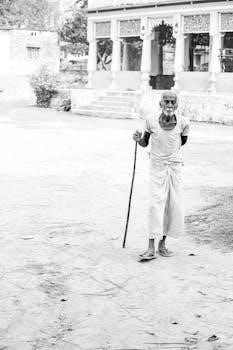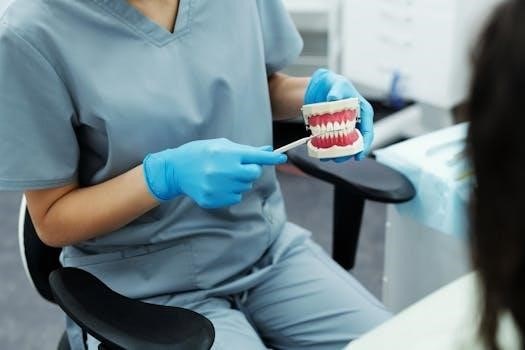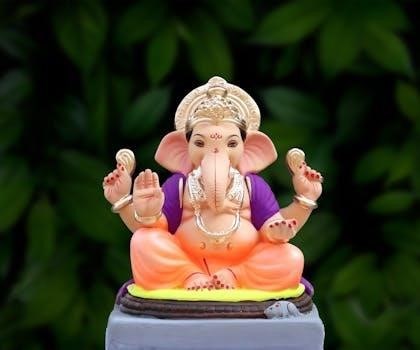
Pre-Operative Instructions for Wisdom Teeth Removal
Preparing for wisdom teeth removal involves several key steps to ensure a safe and successful procedure. These pre-operative instructions are vital to follow carefully. It is essential to discuss your current medications with your doctor before the surgery. Detailed instructions will be given prior to your personal care.
Medication Review with Doctor
A crucial step in preparing for your wisdom teeth removal is a thorough medication review with your doctor. This involves discussing all medications you are currently taking‚ including prescription drugs‚ over-the-counter medications‚ and any herbal supplements or vitamins. Certain drugs can interact negatively with the anesthesia or sedation used during the procedure‚ potentially leading to complications. It is very important to provide a complete and accurate list of all medications to your doctor to ensure your safety. This review allows the doctor to assess any potential risks and make necessary adjustments to your treatment plan. Be sure to mention any allergies or adverse reactions you have experienced with medications in the past. This comprehensive medication review is a critical part of pre-operative planning and helps your oral surgeon take the best approach for your case and ensure a safe and smooth surgery. Understanding your medication history allows for informed decisions regarding anesthesia and pain management after the procedure. It also helps prevent any harmful drug interactions. This step is essential to your care.
Fasting Guidelines Before Surgery
Adhering to fasting guidelines before your wisdom teeth removal is extremely important to minimize the risk of complications during surgery. It is essential that your stomach be empty at the time of your anesthesia appointment. Generally‚ you should not eat any solid foods for at least eight hours before your scheduled surgery. This includes not eating any heavy‚ greasy‚ or fatty foods during this period. The fasting period is crucial for preventing aspiration‚ a dangerous condition where stomach contents can enter the lungs while under anesthesia. This risk is heightened when the stomach contains undigested food‚ which can lead to serious breathing complications. Therefore‚ it is vital to strictly follow your surgeon’s fasting instructions to ensure your safety during the procedure. Failing to follow these guidelines may result in the postponement of your surgery. These fasting guidelines are put in place to help provide the safest possible experience. Remember‚ it is important to follow these directions to allow for the best possible outcome.
Specific Timeframe for Fasting
The specific timeframe for fasting before your wisdom teeth removal is typically eight hours prior to your scheduled appointment time. This means you should not consume any food or liquids‚ including water‚ for a full eight hours. This rule applies to both solid and non-clear liquids‚ encompassing items like gum‚ mints‚ candy‚ and even orange juice. It is not just about food; all beverages are included in this fasting period to ensure an empty stomach for the anesthesia. If your surgery is scheduled for the morning‚ you should abstain from any food or drink after midnight the night before. For those who have afternoon appointments‚ please be sure to calculate eight hours backward from your surgery time. It is crucial to adhere to this timeframe precisely because any deviation can cause complications during anesthesia. Strict adherence to this fasting period is essential for a safe and effective surgical experience. This helps prevent any risks and ensures optimal conditions for your procedure.
Clear Liquid Intake Before Surgery
While a strict fasting period is necessary before surgery‚ there is a specific window during which clear liquids may be consumed. Generally‚ clear liquids‚ defined as anything you can see through‚ are permissible up to four hours before the scheduled surgery time. These liquids include water‚ clear broth‚ and certain juices without pulp. This means you can have a small amount of a clear liquid to stay hydrated and comfortable until that four-hour mark. However‚ it’s essential to strictly avoid any non-clear liquids‚ such as milk‚ smoothies‚ or any beverage with solids. After the four-hour cut-off‚ you must not consume anything‚ including water. The purpose of allowing clear liquids up to this point is to prevent dehydration‚ yet it’s crucial to stop at the designated time to ensure an empty stomach for the anesthesia. Adhering to these clear liquid instructions is vital for a safe procedure. Any deviation from this can lead to potential complications and therefore it’s important to follow them diligently.
Antibiotic Use Before Surgery
In some instances‚ your oral surgeon may prescribe a course of antibiotics to be taken before your wisdom teeth removal procedure. This is typically done when there’s a higher risk of infection‚ often associated with impacted lower wisdom teeth. If you receive a prescription for pre-operative antibiotics‚ it’s crucial to adhere strictly to the prescribed dosage and schedule. Normally‚ a dose of antibiotics‚ often in the form of pills‚ is given during the consultation appointment‚ and it is important to take all of the pills provided‚ usually about four‚ with a small amount of water. It’s paramount to complete the full course of antibiotics‚ even if you feel well before they are finished. This helps to prevent the development of resistant bacteria. Taking the antibiotics as directed will help to prepare your body for surgery and reduce the risk of infection. Always follow the specific instructions from your surgeon regarding antibiotic use. Do not deviate from the prescribed usage and complete the full course.
Smoking Cessation Before Surgery
It is crucial to stop smoking prior to your wisdom teeth removal surgery. Smoking‚ including e-cigarettes‚ can significantly increase the risk of complications during and after the procedure. You should refrain from smoking for at least 72 hours before your surgery‚ ideally much longer. It is important to avoid smoking for at least 12 hours before the procedure. Smoking is very detrimental to breathing while under sedation‚ potentially causing serious issues‚ such as respiratory distress. It also hinders the healing process by reducing blood flow to the surgical site‚ thereby increasing the likelihood of dry socket and other infections. Nicotine and other chemicals in cigarettes can impair the body’s ability to recover‚ thus prolonging the healing time and increasing pain and discomfort. Therefore‚ complete cessation of smoking before surgery can dramatically improve your surgical outcome. This measure is essential to ensure your safety and promote proper healing. Abstaining from smoking will help you have a more comfortable and quick recovery.
Brushing Teeth Before Surgery
Maintaining good oral hygiene is an important part of preparing for your wisdom teeth removal. You should brush your teeth thoroughly the morning of your surgery to remove any food particles and bacteria. This is a crucial step to minimize the risk of infection following the extraction. It is essential to brush gently but effectively‚ paying attention to all areas of the mouth. However‚ after brushing‚ make sure not to swallow any water or toothpaste. This precaution is necessary to keep your stomach empty as required for the anesthesia; You may use a small amount of water to rinse your mouth but ensure that you do not ingest it. It is also important to note that you should avoid using mouthwash or any other oral hygiene products that might contain alcohol or other substances that could interfere with the anesthesia or healing process. Therefore‚ a simple‚ thorough brushing with a small amount of water to rinse is the best approach on the morning of your surgery. Following these steps helps create a clean surgical site‚ thus promoting a better outcome. This will allow for a smoother and safer procedure.
Pre-Medication Instructions
If your oral surgeon has prescribed a pre-medication for you to take before your wisdom teeth removal‚ it is crucial to follow their instructions precisely. Typically‚ this medication is prescribed to help you relax and reduce anxiety before the procedure‚ or to prevent any potential infection. The timing of when to take the medication is very important‚ usually about an hour prior to your scheduled appointment‚ but always adhere to the specific timing provided by your doctor. When taking the pre-medication‚ use only a small sip of water; this is necessary to avoid having a full stomach‚ which is not safe before anesthesia. You should never deviate from the prescribed dosage or timing of the medication. If you have any questions about the medication or its administration‚ be sure to contact your oral surgeon’s office before the day of your surgery. Do not combine this medication with any other medications unless explicitly authorized by your doctor. Be sure to mention any other prescriptions you are taking‚ which might have interactions. Pre-medication is designed to make the experience more comfortable‚ so it is important to follow the directions carefully.

No Nail Polish Before Surgery

It is imperative that you remove all nail polish‚ including gel and acrylic nails‚ before undergoing wisdom teeth removal surgery. This is not a cosmetic preference but a critical safety measure. During the procedure‚ medical professionals monitor your oxygen levels through a device called a pulse oximeter‚ which is typically placed on a finger. The pulse oximeter uses light to measure the oxygen saturation in your blood. Nail polish‚ especially dark colors or thick layers of gel or acrylic‚ can interfere with the device’s ability to accurately read your oxygen levels. Inaccurate readings can lead to undetected complications during the surgery‚ which could put your health at risk. It is essential for the medical team to have a clear and unobstructed view of your nail bed for this monitoring. Therefore‚ remove all nail polish‚ artificial nails‚ and any other nail enhancements before your appointment. This small step can ensure that the medical staff has the most reliable data and contributes to a smooth and safe surgical procedure. Your cooperation in this matter is greatly appreciated and essential for your well-being during the surgery. If you have any questions or concerns about this instruction‚ please contact the oral surgeon’s office;
Dietary Changes Post-Surgery
Following wisdom teeth removal‚ your diet will need careful adjustments to promote healing and minimize discomfort. Initially‚ you should stick to a liquid diet‚ focusing on options that are easy to swallow and require minimal chewing. Milkshakes‚ smoothies‚ and yogurt are excellent choices during this phase. As your recovery progresses‚ you can gradually introduce softer foods that are gentle on the surgical sites. Blenderized foods‚ mashed potatoes‚ and applesauce are good examples of foods you can try. It is crucial to avoid hard‚ crunchy‚ or chewy foods that could irritate the extraction sites or cause pain. Additionally‚ stay away from spicy or acidic foods‚ as they can also cause discomfort. Drinking from straws should be avoided as the sucking action can dislodge blood clots‚ which is crucial for proper healing. Ensure you drink plenty of fluids to stay hydrated‚ but do so by sipping directly from a glass. Pay close attention to your body and if you notice any increased pain or discomfort after eating certain foods‚ revert back to softer foods. It’s also essential to avoid heavy‚ greasy‚ or fatty foods‚ as these can be harder to digest and may delay your healing process. Following these dietary recommendations closely will help ensure a smooth and comfortable recovery.

Managing Post-Operative Swelling
Post-operative swelling is a common and expected occurrence after wisdom teeth removal‚ typically peaking around 2-3 days after the surgery. This swelling can affect the cheeks‚ mouth‚ face‚ and even the area around the eyes. To effectively manage this swelling and minimize discomfort‚ it is vital to apply cold compresses to the outside of your cheek for the first 24 hours. These cold compresses should be applied in intervals‚ rather than continuously‚ to avoid any complications. The cold helps to constrict blood vessels‚ reducing blood flow to the area‚ which‚ in turn‚ minimizes inflammation and swelling. After the first 24 hours‚ you can switch to warm compresses if needed‚ which can help to promote blood flow and reduce stiffness. It’s important to rest and avoid strenuous activities‚ as this can exacerbate swelling. Keep your head elevated when resting‚ using extra pillows to prop yourself up‚ as this helps to reduce swelling. Avoid touching or prodding the surgical sites‚ as this can increase the risk of infection and further swelling. Additionally‚ follow any specific instructions provided by your oral surgeon. If the swelling becomes excessive or is accompanied by severe pain‚ fever‚ or any signs of infection‚ contact your surgeon immediately. Following these instructions will help you control swelling and promote a more comfortable recovery.
Importance of Following Instructions
Adhering to all pre-operative and post-operative instructions is crucial for a smooth and successful wisdom teeth removal procedure. These guidelines are designed to minimize complications‚ promote healing‚ and ensure your overall safety and comfort. Failure to follow these instructions may lead to a variety of issues‚ such as increased risk of infection‚ excessive bleeding‚ prolonged swelling‚ and delayed healing. Pre-operative instructions‚ like fasting guidelines‚ are essential to prevent complications during anesthesia. Post-operative instructions‚ such as dietary restrictions and managing swelling‚ play a vital role in your recovery. Ignoring the advice regarding medication use‚ for example‚ can lead to adverse reactions or interactions with anesthesia. Smoking restrictions are in place to reduce the risk of breathing problems during sedation and to facilitate proper healing. By strictly adhering to the outlined instructions‚ you are actively participating in your own care and recovery. Any deviations from these guidelines can significantly impact the success of your procedure. Therefore‚ it is imperative to take all the instructions given by your oral surgeon seriously and to clarify any doubts before your surgery. Your health and well-being depend on your commitment to following these instructions carefully.
Preparation for Sedation
Preparing for sedation during wisdom teeth removal requires strict adherence to specific guidelines to ensure your safety and the effectiveness of the procedure. One of the most crucial aspects is fasting. Depending on the type of sedation‚ whether it’s general anesthesia or intravenous sedation‚ you will need to abstain from food and drink for a specific period before surgery. For general anesthesia‚ no food or liquid is allowed after midnight on the night before surgery if it’s scheduled for the morning. If you have IV sedation‚ you should not eat or drink for eight hours before the appointment. This includes water‚ coffee‚ tea‚ gum‚ and even mints. The reason for this restriction is to prevent the risk of aspiration‚ which is when stomach contents enter the lungs‚ potentially leading to serious complications. It is also important to arrange for someone to drive you home after the procedure‚ as the effects of sedation can impair your ability to operate a vehicle safely. You should also wear comfortable‚ loose-fitting clothing to your appointment. Make sure to inform your doctor about any medications or supplements you are currently taking. Following these instructions carefully is essential for a safe and smooth sedation experience during your wisdom teeth removal.
